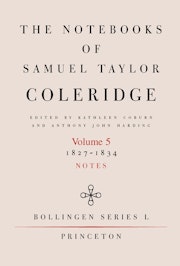Samuel Taylor Coleridge
This collection, which literary critic I. A. Richards called “one of the noblest, most arduous, and most promising of our times,” comprises the known writings of Coleridge (1772–1834) in prose and verse. Some titles have been published from manuscript for the first time.
-
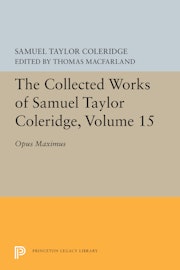
The Opus Maximum gathers the last major body of unpublished prose writings by Samuel Taylor Coleridge. Consisting primarily of fragments dictated to Joseph Henry Green, probably between 1819 and 1823, these writings represent all that...
-
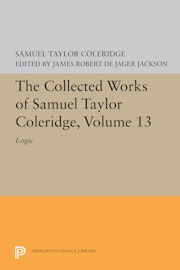
The manuscript of Coleridge's Logic is published here in its entirety for the first time, along with the texts of manuscripts that are directly related to it.
Coleridge's plans to write about logic go back at least as far as 1803, but it... -
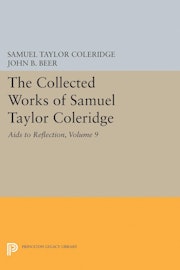
Coleridge's Aids to Reflection was written at a time when new movements in thought were starting to unsettle belief. It was read with admiration by early Victorians such as John Sterling, F. D. Maurice, and Thomas Arnold, contributing...
-
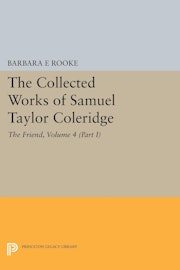
Published originally in 1809-1810, The Friend was revised in 1812, by public demand. In 1818, a three-volume rifacimento appeared in which Coleridge attempted to dispel obscurity, tie up loose threads of reasoning, and provide more...
-
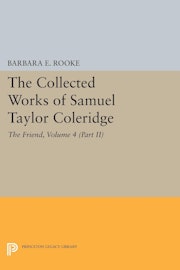
Published originally in 1809-1810, The Friend was revised in 1812, by public demand. In 1818, a three-volume rifacimento appeared in which Coleridge attempted to dispel obscurity, tie up loose threads of reasoning, and provide more...
-
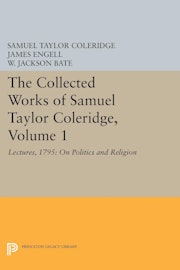
Coleridge began in 1795 a series of public lectures. This volume includes all the printed and manuscript versions of the Bristol lectures in chronological sequence. Among the contents are "Lectures on Revealed Religion, Its Corruption...
-
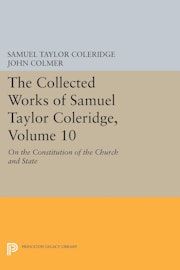
Based on a comparison of early editions, manuscripts, and copies annotated by the poet himself, this edition provides a reliable text of Coleridge's last prose work, first published in 1830. Originally intended to influence public...
-
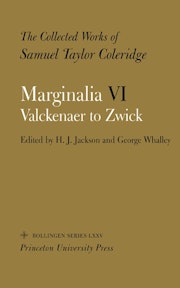
In his introduction to this edition of Coleridge's Marginalia, the late George Whalley wrote, ''There is no body of marginalia--in English, or perhaps in any other language--comparable with Coleridge's in range and variety and in the...
-
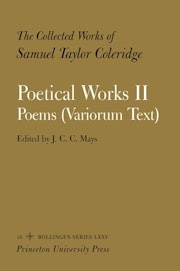
Poetry in its many guises is at the center of Coleridge's multifarious interests, and this long-awaited new edition of his complete poetical works marks the pinnacle of the Bollingen Collected Coleridge. The three parts of Volume 16...
-
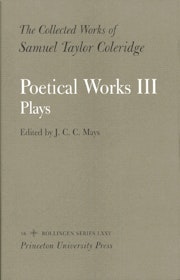
Poetry in its many guises is at the center of Coleridge's multifarious interests, and this long-awaited new edition of his complete poetical works marks the pinnacle of the Bollingen Collected Coleridge. The three parts of Volume 16...
-
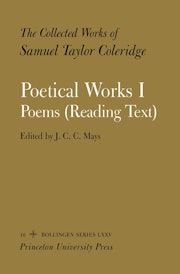
Poetry in its many guises is at the center of Coleridge's multifarious interests, and this long-awaited new edition of his complete poetical works marks the pinnacle of the Bollingen Collected Coleridge. The three parts of Volume 16...
-
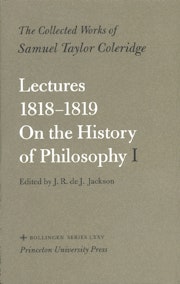
During the winter of 1818-1819, Samuel Taylor Coleridge gave fourteen lectures on the history of philosophy. A shorthand writer took down twelve of them in the most detailed version of Coleridge's lectures known to exist. The...
-
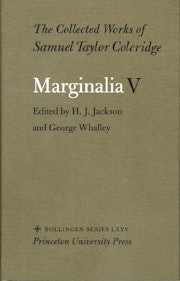
In his introduction to this edition of Coleridge's Marginalia, the late George Whalley wrote, "There is no body of marginalia--in English, or perhaps in any other language--comparable with Coleridge's in range and variety and in the...
-
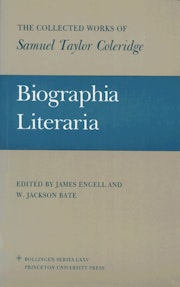
Biographia Literaria has emerged over the last century as a supreme work of literary criticism and one of the classics of English literature. Into this volume poured 20 years of speculation about the criticism and uses of poetry and...
